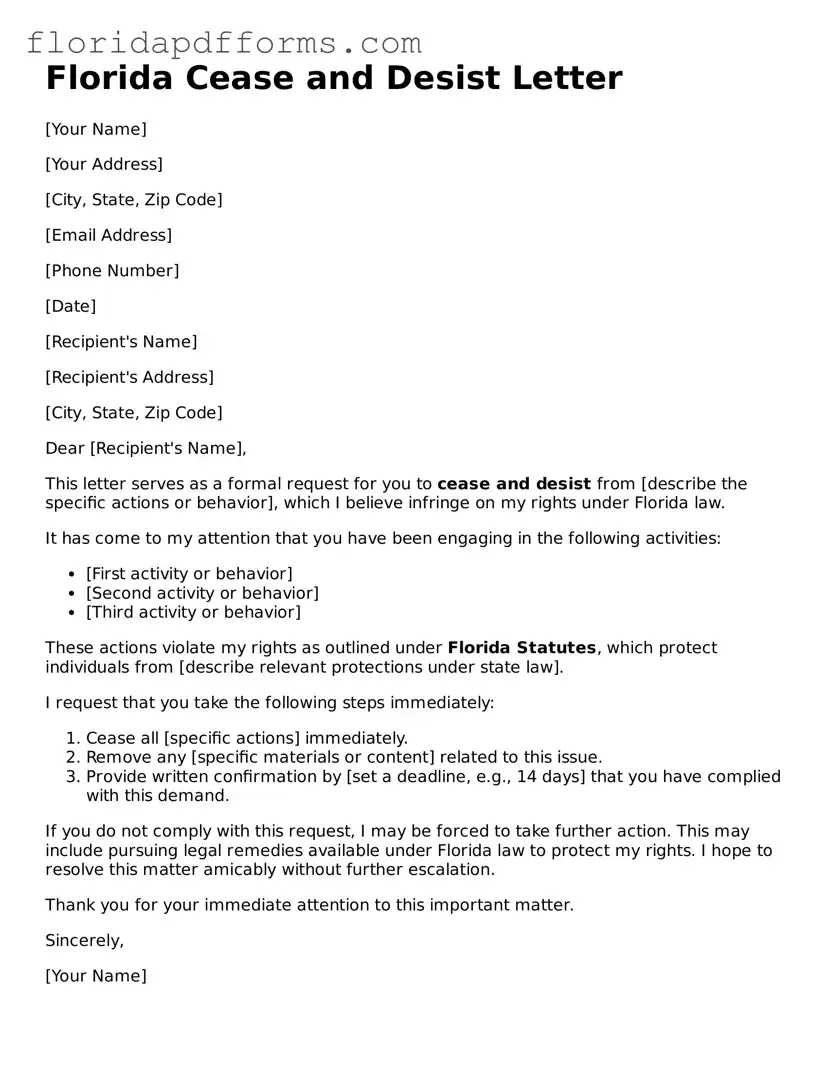Official Cease and Desist Letter Template for Florida
A Florida Cease and Desist Letter is a formal document used to demand that an individual or organization stop certain actions that are believed to be harmful or unlawful. This letter serves as a warning before legal action may be pursued, allowing the recipient an opportunity to comply with the request. If you need to address a situation, consider filling out the form by clicking the button below.
Modify Cease and Desist Letter Now

Official Cease and Desist Letter Template for Florida
Modify Cease and Desist Letter Now

Modify Cease and Desist Letter Now
or
⇓ Cease and Desist Letter File
Don’t stop halfway through your form
Finish your Cease and Desist Letter online with quick edits and instant download.